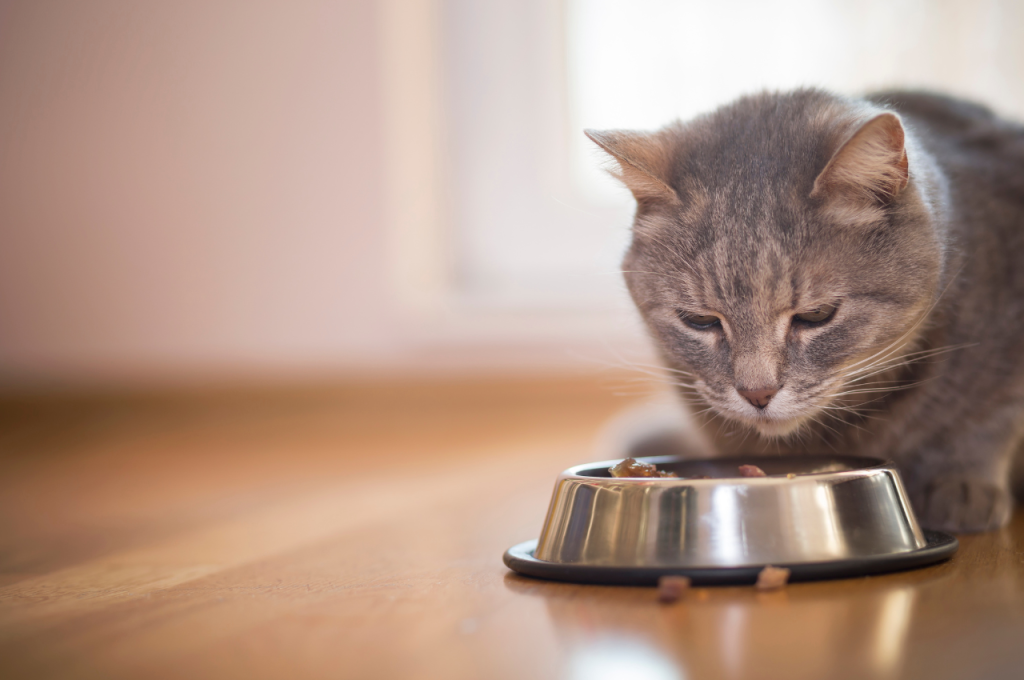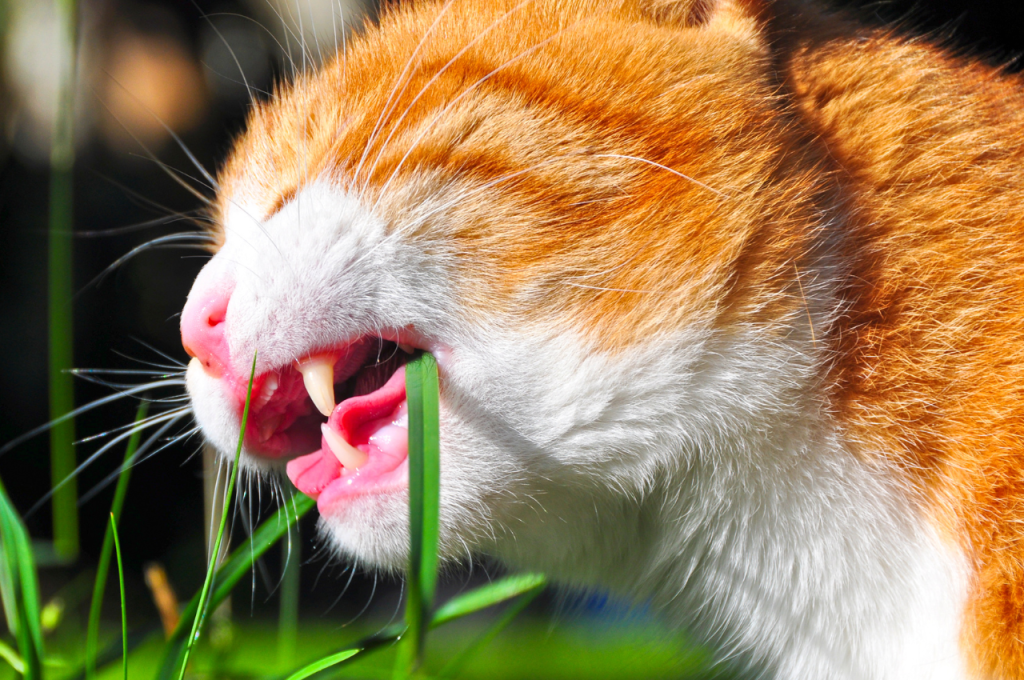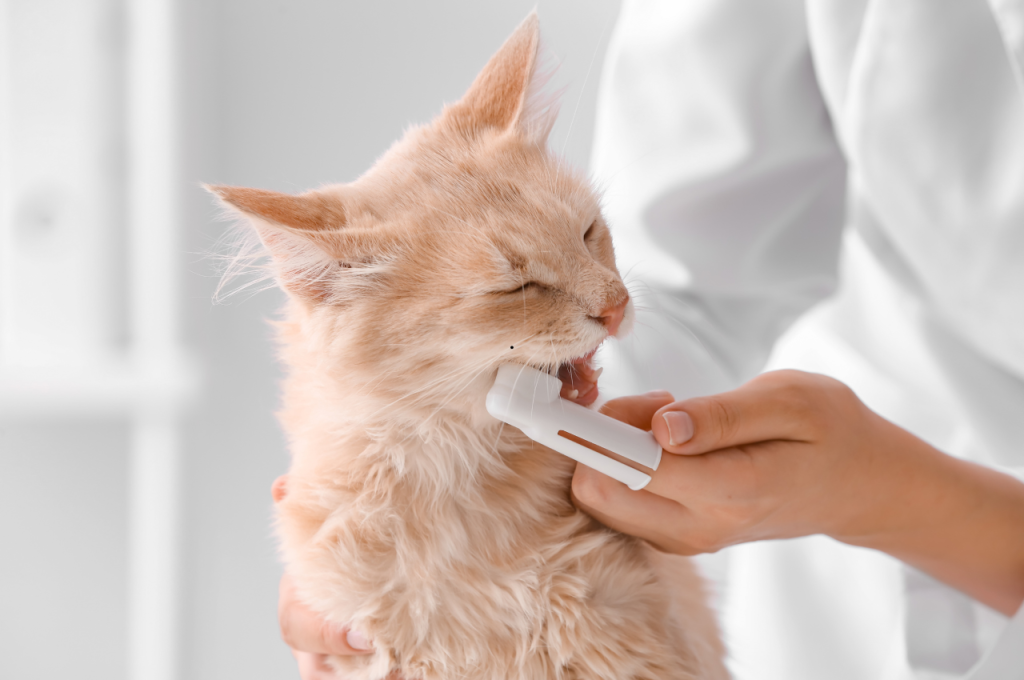Your cat may not be eating due to various reasons, including illness, stress, dental problems, or a change in their environment. It is essential to monitor their behavior and consult a veterinarian if the lack of appetite persists.
Taking prompt action can help identify and address the underlying cause, ensuring your cat’s well-being and overall health. Encouraging a balanced diet and providing a calm and comfortable space for your cat can also help stimulate their appetite. Paying attention to your cat’s eating habits is crucial to maintaining their health and providing them with the necessary care they require.
Common Reasons Cats Stop Eating
Cats may stop eating due to stress, dental issues, illness, or a sudden change in their food. It’s important to monitor their behavior and consult a veterinarian if they refuse to eat for more than 24 hours. A loss of appetite in cats can be a sign of an underlying health problem.

Common Reasons Cats Stop Eating As a cat owner, it can be concerning when your furry friend stops eating. A lack of appetite can be an indication of an underlying health issue or a result of changes in their environment. In this section, we will discuss the common reasons why cats stop eating and how to address them. Changes in Environment Cats are creatures of habit and thrive on routine. Any changes in their environment can cause stress and anxiety, resulting in a loss of appetite. Here are some common changes that can affect your cat’s eating habits:
- A new home or location
- Changes in their feeding schedule
- New or unfamiliar people or pets in the home
- Changes in their litter box location or type
If you’ve recently made any changes to your cat’s environment, try to gradually introduce these changes to help them adjust. Provide a safe and quiet space for your cat to eat, away from any potential stressors. Health Issues A loss of appetite can also be a sign of an underlying health issue. Here are some common health problems that can cause a cat to stop eating:
| Health Issue | Symptoms |
| Dental problems | Difficulty chewing, drooling, bad breath |
| Gastrointestinal issues | Vomiting, diarrhea, constipation, abdominal pain |
| Respiratory infections | Coughing, sneezing, nasal discharge |
| Kidney disease | Increased thirst and urination, weight loss, lethargy |
If you notice any of these symptoms or your cat has not eaten for more than 24 hours, it’s important to consult with your veterinarian. They can diagnose and treat any underlying health issues that may be affecting your cat’s appetite. In conclusion, changes in the environment and health issues are common reasons why cats stop eating. By being aware of these factors and taking the necessary steps to address them, you can help ensure your cat maintains a healthy appetite and overall well-being.
The Role of Stress in Appetite Loss
Stress can have a significant impact on a cat’s appetite. When cats experience stress, whether it be from changes in their environment, unfamiliar people or animals, or even medical issues, they may lose their appetite. It’s important for cat owners to be aware of the signs of stress and take steps to reduce it in order to encourage their cats to eat.
Signs of Stress
Identifying the signs of stress in your cat is crucial in addressing appetite loss. Here are some common signs to look out for:
- Decreased appetite or refusal to eat
- Weight loss
- Excessive grooming or hair loss
- Aggression or hiding
- Increased vocalization or excessive meowing
- Change in litter box habits
If you notice any of these signs, it’s important to investigate the cause of stress and take appropriate action to alleviate it.
Reducing Stress for Your Cat
Creating a stress-free environment for your cat can help restore their appetite. Here are some strategies you can implement:
- Establish a routine: Cats thrive on routine, so maintaining a consistent schedule for feeding, playtime, and rest can help reduce stress.
- Provide a safe space: Ensure your cat has a designated area where they can retreat to when they feel overwhelmed or anxious.
- Minimize changes: Cats are creatures of habit, so try to avoid making unnecessary changes to their environment.
- Introduce gradual changes: If you do need to make changes, such as introducing a new pet or moving furniture, do so gradually to give your cat time to adjust.
- Offer interactive toys and enrichment: Providing mental stimulation can help distract your cat from stressors and encourage them to eat.
- Consider pheromone therapy: Products like Feliway, which mimic natural feline pheromones, can help create a calming environment for your cat.
By implementing these strategies and addressing the underlying causes of stress, you can help your cat regain their appetite and overall well-being.
Dental Problems: a Hidden Culprit
Discover the hidden culprit behind your cat’s decreased appetite – dental problems. Cats may refuse to eat due to painful dental issues, emphasizing the importance of regular veterinary dental check-ups.

Symptoms of Dental Issues
If your cat isn’t eating, dental issues could be the hidden culprit. Dental problems in cats are common and can cause pain and discomfort, leading to a loss of appetite. Some common symptoms of dental issues in cats include:
- Bad breath
- Difficulty chewing or dropping food from the mouth
- Bleeding gums
- Loose or missing teeth
- Swelling in the mouth or face
Treatment Options
If your cat is experiencing dental issues, it’s important to seek veterinary care. Your vet may recommend a dental exam or cleaning under anesthesia to remove plaque and tartar buildup. In some cases, extractions may be necessary to address severe dental disease. Additionally, your vet may recommend dietary changes or supplements to support dental health and prevent further problems.
Prevention is key when it comes to dental issues in cats. Regular dental care, including brushing your cat’s teeth and providing dental-friendly treats and toys, can help prevent dental disease and keep your cat’s teeth healthy and pain-free.
Dietary Dislikes and Allergies
Cats are known for their discerning tastes, and their eating habits can provide valuable clues about their health and well-being. When a cat begins to show disinterest in food, it’s essential to consider the possibility of dietary dislikes and allergies. Understanding these factors can help pet owners address their cat’s nutritional needs effectively and ensure their overall well-being.
Identifying Food Preferences
Cats, much like humans, have individual food preferences that can influence their eating habits. Some cats may prefer wet food over dry kibble, while others may have specific protein preferences. It’s essential to observe your cat’s behavior around different types of food to identify their preferences. Additionally, offering a variety of high-quality food options can help determine your cat’s likes and dislikes, allowing you to tailor their diet accordingly.
Detecting Food Allergies
Food allergies can significantly impact a cat’s appetite and overall well-being. Common allergens for cats include certain proteins such as beef, dairy, and fish, as well as grains like wheat and corn. Symptoms of food allergies in cats may include gastrointestinal issues, skin irritations, and excessive scratching. If you suspect that your cat may have food allergies, consult with a veterinarian to discuss potential allergens and appropriate dietary changes to address these issues effectively.
When to Visit The Vet
If your cat isn’t eating, it’s essential to visit the vet promptly. Loss of appetite in cats can be a sign of various health issues, so it’s crucial to seek professional help to determine the underlying cause and provide the necessary treatment.
What To Expect During The Visit
During the vet visit, the vet will perform a physical examination to check for any underlying health issues. Blood tests may be conducted to determine the cause of your cat’s appetite loss. If your cat is not eating, it is essential to monitor for warning signs and be prepared to visit the vet.
Home Care Strategies
Home care strategies are crucial when dealing with a cat that isn’t eating. Implementing the right techniques can help encourage your cat to eat, monitor its health at home, and determine if professional intervention is necessary.
Encouraging Eating
Create a quiet, comfortable eating environment to reduce stress and anxiety for your cat. Offer a variety of foods such as wet food, dry food, or treats to entice your cat to eat. Warm the food slightly to enhance its aroma and make it more appealing. Hand-feed your cat to encourage eating and bonding.
Monitoring Health at Home
Observe your cat’s behavior to detect any signs of illness or discomfort. Check for changes in weight, activity levels, and litter box habits. Examine your cat’s mouth for any abnormalities that may be causing eating difficulties. Keep track of food intake and note any preferences or aversions.
The Impact of Age on Eating Habits
Senior Cats
As cats age, their eating habits may change due to various factors such as dental issues, reduced sense of smell and taste, or underlying health conditions. Senior cats may become more selective about their food and show a decreased interest in eating, which can be a cause for concern for pet owners.
Adjusting The Diet for Older Cats
When adjusting the diet for older cats, it’s important to consider their specific nutritional needs. This may involve choosing specially formulated senior cat food that addresses their changing dietary requirements. Additionally, consulting with a veterinarian can help in determining the best approach to ensure that senior cats are receiving adequate nutrition.
Preventative Measures for The Future
Encouraging your cat to eat is essential to their health. It’s important to take preventative measures for the future by identifying the reason for their lack of appetite. Consult your vet and offer a variety of foods to find what works best for your feline friend.

Regular Check-ups
Regular check-ups are essential to monitor your cat’s health and catch any potential issues early on. Scheduling annual veterinary visits can help ensure that your cat receives the necessary preventive care and vaccinations.
Maintaining a Stress-free Environment
Maintaining a stress-free environment is crucial for your cat’s overall well-being. Providing a comfortable and secure living space, incorporating regular play and interaction, and ensuring a consistent feeding schedule can help reduce stress levels and encourage healthy eating habits.
Conclusion
Ultimately, understanding why your cat isn’t eating is crucial for their well-being. By exploring potential reasons such as stress, illness, or diet changes, you can take the necessary steps to address the issue promptly. Remember, consulting a vet is always the best course of action for your feline companion’s health.
